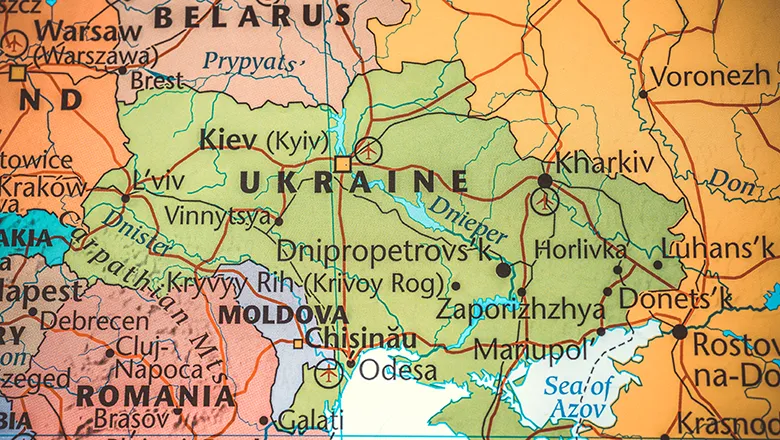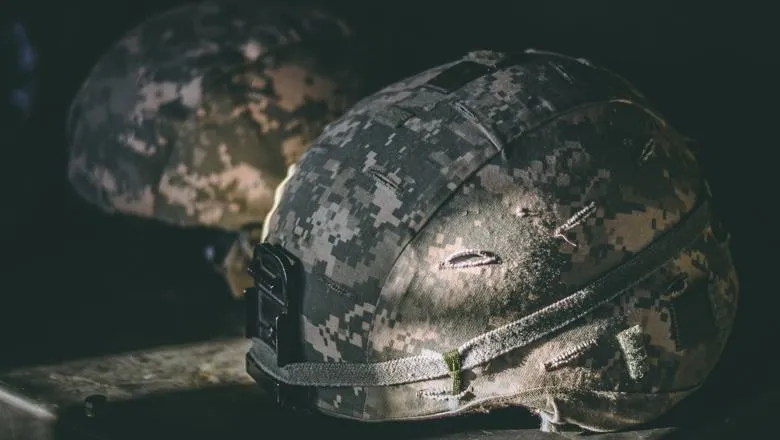
Dr Marc Berenson
Senior Lecturer, King's Russia Institute
Biography
Prior to joining King’s Russia Institute in September 2013 as Senior Lecturer, Dr Marc P. Berenson was serving, since 2007, as a research fellow on the Governance Team at the Institute of Development Studies at the University of Sussex in Brighton. His projects on governance, public administration, state capacity and state-society relations in Russia, Ukraine and Poland have been empirically, conceptually and methodologically ground-breaking, with a particular (and particularly important) focus on the ways in which citizens’ interactions with the bureaucracy shapes and is shaped by their perceptions of the state and the meaning of their own citizenship. His book – Taxes and Trust: Transitioning from Coercion to Compliance in Poland, Russia and Ukraine – was published in 2018 by Cambridge University Press, and his articles have appeared in Comparative Political Studies, the Journal of Communist Studies and Transition Politics and elsewhere. Previously, Dr Berenson worked as a research analyst for the American Bar Association, the EastWest Institute, The Carter Center and the Strengthening Democratic Institutions Project at Harvard's Kennedy School of Government. He also has undertaken several consultancies, for, among others, the World Bank in Russia and the OECD’s Tax and Development Programme.
After receiving his BA from Harvard University, Dr Berenson founded and directed from 1996 to 1998 the 'Law in Action' program for Freedom House in Kyiv, Ukraine, before receiving his PhD in Political Science from Princeton University in 2006. A recipient of more than a dozen academic grants and fellowships, he is fluent in Russian, Polish and English, reads Ukrainian and speaks Italian.
Office hours
By appointment
Monday: 14.00 - 15.00
Friday: 13.00 - 14.00
Research
Society and State Across the Post-Communist World
In looking across the post-communist world—and especially at Poland, Russia and Ukraine, Dr Berenson has oriented his governance-centred research towards all of the classic functions performed by all states (to some degree or another)—with the notable exception of the security and defence policy arena. Namely, Dr Berenson has focused on the implementation of tax collection policy (as a measure of the extraction of resources from society) and on poverty relief and pensions policies (as a measure of the distribution of money back into society), and he has been intrigued by regulatory policy areas as well. The implementation of extractive, distributive and regulatory policies, Dr Berenson argues, are good ones for researching how states and societies interact to get things done as they require the penetration of society as well as utilise a variety of resources and legitimacy on the part of the people to be successful. Examining these areas provides a clearer view of the core, fundamental state tasks. In investigating these issues, Dr Berenson broadly utilises a variety of qualitative and quantitative methods, including especially public opinion and survey research.
Dr Berenson’s recently published book - Taxes and Trust: From Coercion to Compliance in Poland, Russia and Ukraine – focuses on three states at three, distinctly different stages of the transition from a coercive governing regime to such a state. Poland has transitioned successfully to a rule-of-law tax state, implementing client-oriented tax collection policies to ensure high levels of compliance. Russia employs a largely coercive tax system that enjoys moderate levels of tax compliance. Ukraine, meanwhile, has failed to build a tax state that is either effectively coercive or legitimate in the eyes of its citizens, rendering lower levels of compliance. In essence, Poland has been more effective because it has a state that is more organised, embodied with more resources and more citizen-focused as well as a society that is more capable of being a compliant partner. Effective governance occurs when state and society interact in a dualistic process through trust.
Teaching
Dr Berenson teaches the following modules at the King`s Russia Institute:
- The Practice of Policymaking in Contemporary Russia (co-taught with Dr Adnan Vatansever)
- Governance and Economic Growth in Transition
- States and Markets (undergraduate level)
He is available to supervise research students in the areas of governance, state-building and state-society relations as well as leads dissertation workshops for MSc students at the Russia Institute.
Research

European Politics and Society Research Group
The European Politics and Society research group brings together scholars of all career stages to discuss ongoing work related to the changing identity, visions, capabilities, and relationships which shape contemporary Europe and Europeans.
News
King's experts offer insights following death of Alexei Navalny
The death of prominent Kremlin critic Alexei Navalny has generated headlines around the globe.

Introducing: Contemporary Ukrainian Politics and Society
New modules for undergraduate and postgraduate students being launched at King’s College London will examine the past, present and future of Ukraine.

WATCH: Europe's Russian Energy Crisis
A chance to rewatch this King's Russia event again in full

Sharing our expertise and insights on the war on Ukraine
Researchers and academics in our Faculty of Social Science & Public Policy are using their expertise to inform discussion and debate around Russia’s invasion...

Ukraine must strive to 'gain trust' of citizens in efforts to reform
A King’s College London academic believes there are two options before Ukraine as it enters its fourth decade of reform efforts with renewed steps against...

Events

Understanding the Russian Audiences - a symposium
The symposium aims to explore the current state of Russian society two years after the full-scale invasion of Ukraine.
Please note: this event has passed.

Mobilising for War in Russia
Join Sir Lawrence Freedman, Natasha Kuhrt, Marc Berenson, Maxim Alyukov and Gulnaz Sharafutdinova to discuss Russia's mobilisation
Please note: this event has passed.
Features
Sharing our expertise and insights on the war on Ukraine
Researchers and academics in our Faculty of Social Science & Public Policy are using their expertise to inform discussion and debate around Russia’s invasion...

Research

European Politics and Society Research Group
The European Politics and Society research group brings together scholars of all career stages to discuss ongoing work related to the changing identity, visions, capabilities, and relationships which shape contemporary Europe and Europeans.
News
King's experts offer insights following death of Alexei Navalny
The death of prominent Kremlin critic Alexei Navalny has generated headlines around the globe.

Introducing: Contemporary Ukrainian Politics and Society
New modules for undergraduate and postgraduate students being launched at King’s College London will examine the past, present and future of Ukraine.

WATCH: Europe's Russian Energy Crisis
A chance to rewatch this King's Russia event again in full

Sharing our expertise and insights on the war on Ukraine
Researchers and academics in our Faculty of Social Science & Public Policy are using their expertise to inform discussion and debate around Russia’s invasion...

Ukraine must strive to 'gain trust' of citizens in efforts to reform
A King’s College London academic believes there are two options before Ukraine as it enters its fourth decade of reform efforts with renewed steps against...

Events

Understanding the Russian Audiences - a symposium
The symposium aims to explore the current state of Russian society two years after the full-scale invasion of Ukraine.
Please note: this event has passed.

Mobilising for War in Russia
Join Sir Lawrence Freedman, Natasha Kuhrt, Marc Berenson, Maxim Alyukov and Gulnaz Sharafutdinova to discuss Russia's mobilisation
Please note: this event has passed.
Features
Sharing our expertise and insights on the war on Ukraine
Researchers and academics in our Faculty of Social Science & Public Policy are using their expertise to inform discussion and debate around Russia’s invasion...

